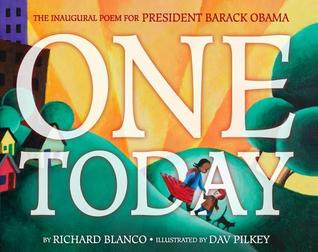A little over a decade ago, Northern Essex Community College joined Achieving the Dream, a network of community colleges around the country focused on using data to drive decisions and improve student success, particularly for students of color, low income students, and those who may be the first in their families to go to college.
Along with Bunker Hill, Roxbury, and Springfield Tech—also Achieving the Dream colleges—NECC has the largest population of these students in the Commonwealth; and they often face challenges and find success at rates very different from other students.
The results for us have been significant.
Our overall student retention and graduation rates have improved; more students are making it through developmental (“remedial”) classes and into college level coursework; and the gap between minority and majority student success rates has shrunk faster than anywhere else in Massachusetts.
Still, we have a long way to go to ensure that all of our students succeed.
In pursuit of that goal, a team of NECC faculty and staff attended the Achieving the Dream annual conference in Nashville last week, where we participated in workshops on Guided Pathways, ensuring equity through effective Diversity and Inclusion practices, using Predictive Analytics to improve student success, and more.
Lots of lessons learned, and plenty of takeaways for our dedicated and driven bunch to pack in their carry-ons, roll back to campus, and share with colleagues and students—along with some powerful inspiration from the conference’s closing keynote speaker, and former community college student, poet Richard Blanco.
Blanco, who was also a guest of the NECC-sponsored White Fund Lecture Series a few years ago, describes himself as, “Made in Cuba, assembled in Spain, and imported to the USA.”
He received an engineering degree from Florida International University and plied his trade on town revitalization projects in the Miami area by day, but it was an evening creative writing class at Miami Dade Community College that eventually awoke the poet in him.
His compelling and deeply personal poetry and memoirs, which tell stories of his family’s immigration experiences, his unique blend of cultural influences, and navigating his sexual and artistic identities, caught the attention of President Barak Obama, who asked him to compose a poem for his second inauguration in 2013.
Blanco was the first immigrant, the first Latino, the first openly gay person, and the youngest person to become an inaugural poet with a remarkable composition called “One Today.”
During his keynote on Friday, Blanco shared his personal story and read from his works, including his now-famous inaugural poem, with its references to parents who toiled in sugarcane fields and grocery stores so children could lead better lives; to the Babylon of languages carried on the American breeze; and to the sorrow of a nation grieving the children lost at Sandy Hook Elementary School in the violence just a few weeks before.
Perhaps even more compelling and relevant now than it was just a few years ago, “One Today” embraces the stories and lives of those who struggle toward success, like many of our community college students; and offers a message of unity and hope at a time in our “One Country’s” history when we often seem more fractured and fractious than ever.
Thank you, Richard Blanco, for this reminder, for this gift:
“One Today”
One sun rose on us today, kindled over our shores,
peeking over the Smokies, greeting the faces
of the Great Lakes, spreading a simple truth
across the Great Plains, then charging across the Rockies.
One light, waking up rooftops, under each one, a story
told by our silent gestures moving behind windows.
My face, your face, millions of faces in morning’s mirrors,
each one yawning to life, crescendoing into our day:
pencil-yellow school buses, the rhythm of traffic lights,
fruit stands: apples, limes, and oranges arrayed like rainbows
begging our praise. Silver trucks heavy with oil or paper—
bricks or milk, teeming over highways alongside us,
on our way to clean tables, read ledgers, or save lives—
to teach geometry, or ring-up groceries as my mother did
for twenty years, so I could write this poem.
All of us as vital as the one light we move through,
the same light on blackboards with lessons for the day:
equations to solve, history to question, or atoms imagined,
the “I have a dream” we keep dreaming,
or the impossible vocabulary of sorrow that won’t explain
the empty desks of twenty children marked absent
today, and forever. Many prayers, but one light
breathing color into stained glass windows,
life into the faces of bronze statues, warmth
onto the steps of our museums and park benches
as mothers watch children slide into the day.
One ground. Our ground, rooting us to every stalk
of corn, every head of wheat sown by sweat
and hands, hands gleaning coal or planting windmills
in deserts and hilltops that keep us warm, hands
digging trenches, routing pipes and cables, hands
as worn as my father’s cutting sugarcane
so my brother and I could have books and shoes.
The dust of farms and deserts, cities and plains
mingled by one wind—our breath. Breathe. Hear it
through the day’s gorgeous din of honking cabs,
buses launching down avenues, the symphony
of footsteps, guitars, and screeching subways,
the unexpected song bird on your clothes line.
Hear: squeaky playground swings, trains whistling,
or whispers across café tables, Hear: the doors we open
for each other all day, saying: hello, shalom,
buon giorno, howdy, namaste, or buenos días
in the language my mother taught me—in every language
spoken into one wind carrying our lives
without prejudice, as these words break from my lips.
One sky: since the Appalachians and Sierras claimed
their majesty, and the Mississippi and Colorado worked
their way to the sea. Thank the work of our hands:
weaving steel into bridges, finishing one more report
for the boss on time, stitching another wound
or uniform, the first brush stroke on a portrait,
or the last floor on the Freedom Tower
jutting into a sky that yields to our resilience.
One sky, toward which we sometimes lift our eyes
tired from work: some days guessing at the weather
of our lives, some days giving thanks for a love
that loves you back, sometimes praising a mother
who knew how to give, or forgiving a father
who couldn’t give what you wanted.
We head home: through the gloss of rain or weight
of snow, or the plum blush of dusk, but always—home,
always under one sky, our sky. And always one moon
like a silent drum tapping on every rooftop
and every window, of one country—all of us—
facing the stars
hope—a new constellation
waiting for us to map it,
waiting for us to name it—together.






